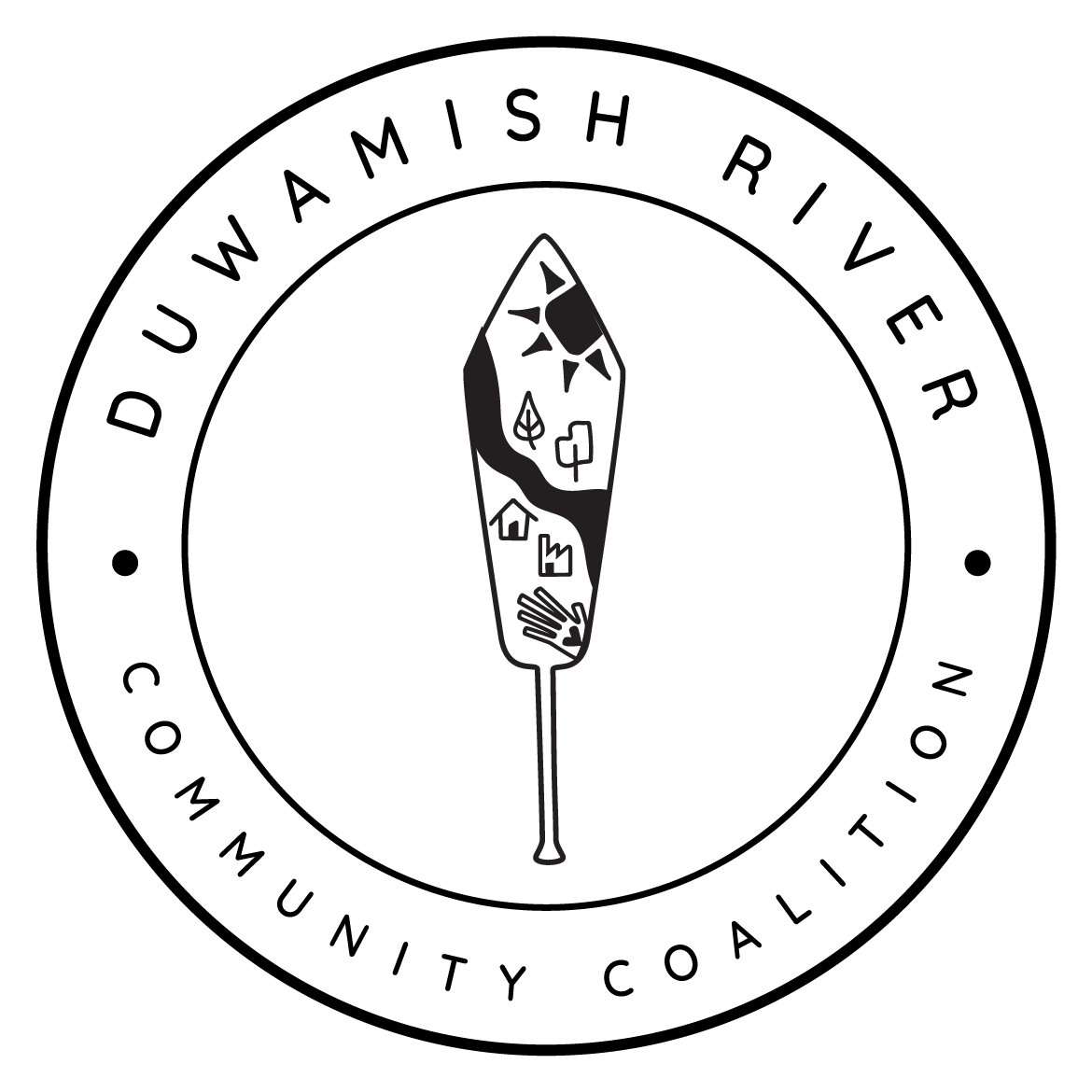Community Projects and Initiatives
Ardagh Glass lease renewal
What is currently happening?
A little more than a week ago we learned that the County is renewing its lease for County land to Ardagh Glass in Georgetown. We firmly oppose this renewal until the Duwamish Valley community has an opportunity to meaningfully engage in the lease process and fully vet the environmental impact of Ardagh’s continued operations on local air quality, water pollution and community health with the County.
We request you follow up on 2019 Recommended Actions
We recommend that Ardagh stop violating air emission standards under the Federal Clean Air Act
We recommend that Ardagh can do this by installing bag house (air filtration systems) technology.
We recommend Ardagh stop violating the Clean Water Act and WA state surface water standards to the Duwamish River though its outfalls.
We recommend that Ardagh use Best Management practices protecting the health of Duwamish Valley neighbors.
We recommend that Ardagh establish a Good Neighbor Agreement with the community,
Please read more in this letter:
𝗪𝗵𝗮𝘁 𝗶𝘀 𝗵𝗮𝗽𝗽𝗲𝗻𝗶𝗻𝗴 𝘄𝗶𝘁𝗵 𝘁𝗵𝗲 𝗗𝘂𝘄𝗮𝗺𝗶𝘀𝗵 𝗪𝗮𝘁𝗲𝗿𝘄𝗮𝘆 𝗣𝗮𝗿𝗸?
The Duwamish Waterway Park (Site) is located on the west side of the Lower Duwamish Waterway (LDW) in the South Park neighborhood of Seattle. The Site is approximately 1.7 acres and includes a play area, picnic area, and beach with river access. Seattle Parks and Recreation owns and manages the park.
We are seeking input from the community about what you all want done about the fences at Duwamish Waterway Park while the WA State Dept. of Ecology conducts further testing to determine the amount and location of pollution.
The Duwamish Waterway Park cleanup is moving from an independent cleanup process managed under Ecology’s Voluntary Cleanup Program (or VCP for short) to the formal cleanup process which will be managed in the future by a formal site manager. During the independent cleanup process, Ecology provided technical assistance to the City of Seattle’s Parks and Recreation Department to fulfill the cleanup requirements under Washington State’s environmental cleanup law – the Model Toxics Control Act (or MTCA for short). Ecology’s technical assistance to Seattle Parks included reviews of investigations and cleanup actions as well as guidance on how to address any data gaps in Seattle Park’s work so that they could fulfill MTCA’s cleanup requirements and achieve a “No Further Action” designation from the VCP program.
City of Seattle Maritime and Industrial Strategy
The Industrial and Maritime Strategy describes how different land use changes, updates, options and other strategies will impact the built and natural environment in community and industrial areas. This Strategy is focused on "how the city can protect and support industry and port operations." The City of Seattle Maritime and Industrial Strategy sees the need to invest in workforce development and to develop a proactive land use policy agenda that ensures innovation and industrial jobs are a robust part of our future economy.
What does DRCC think about this?
The DEIS concentrates on land use policy and zoning – its analysis of the equity and environmental justice is incomplete. The environmental impact analysis is narrow and does not fully address core principles related to environmental justice and a fair community driven process. Community needs clear environmental justice standards. It is unfair to resolve all environmental justice concerns by proposing redevelopment and incomplete mitigation recommendations while industry remains protected.
You can provide comments and share your opinion on the types of improvements and investments you would like to see to address your concerns . You can also point what is missing or that you feel is incomplete. What would you like to see? As a result, the City may refine information, provide additional information or corrections, and may include identification of a preferred alternative.
Because the Strategy focus on land use updates, many environmental justice questions and principles raised the the community advisory group for the Duwamish remain unanswered. For each subject the DEIS identifies steps to improve potential impacts such as high air filtration standards in residential construction, pedestrian and bicycle network improvements, cultural resources surveys etc. You can also ADVOCATE FOR NEW ALTERNATIVES AND SOLUTIONS that mirror our own community needs!
We will be sharing some summary fact sheets about this complex subject in hopes the community can have the right information to provide comments.
Currently the City is accepting comments until March 2nd. We would love to hear your thoughts/ concerns.
King County International Airport Community Coalition (KCIACC)
This page hosts information for the King County International Airport Community Coalition (KCIACC), only. For more information about KCIACC please reach out directly to the coalition at KCIACC-WA@gmail.com.
King County International Airport Community Coalition (KCIACC) works for health, climate and environmental justice to preserve the history and uplift the long-standing impacted communities in Allentown-Tukwila, South Park, Georgetown, Beacon Hill and Duwamish Valley Neighborhoods from aviation and environmental racism.
KCIACC members include Friends of Georgetown History (FOGHI), Duwamish River Community Coalition, Georgetown Community Council, Beacon Hill Council, 350 Seattle Aviation, Spean Rajana, Climate Leaders, Health and Equity Alliance, Puget SoundKeepers, WA Build Back Black Alliance, Eco Infinity Nation as well as many community advocates!
Community Based Action on Heavy Duty Trucks in the Duwamish Valley
Working to Eliminate Emissions From Heavy Duty Trucks: Zero Emission Coordinator project with the City of Seattle and ICCT
We aim to support the significant reduction of diesel emissions from drayage trucks through a series of community-based and community-led activities, inspired and guided by the Community Action Team and project partners.
Drayage trucks are trucks that have a flat bed so that large shipping containers can be placed on them. These trucks make short distant trips in and around the Port area and are foundational to the functioning of the Port.
The goal to significantly reduce diesel emissions is a high community priority as drayage service trucks contribute to air pollution in the Duwamish Valley, which disproportionately impacts Duwamish Valley residents compared to the broader Seattle area.






